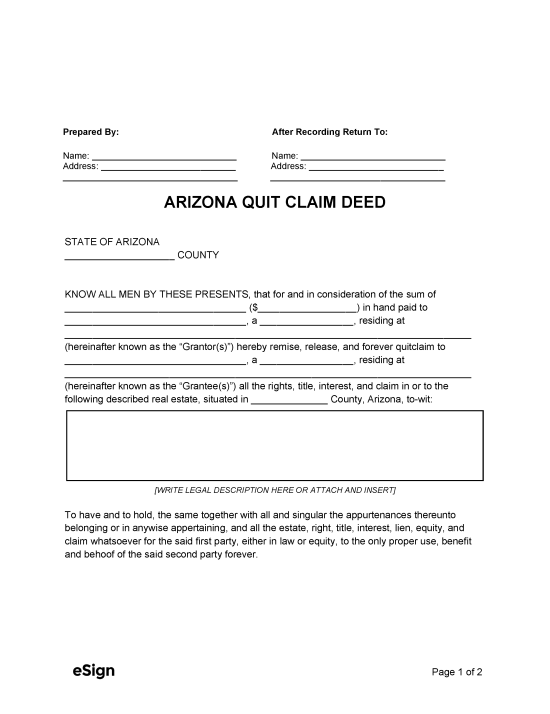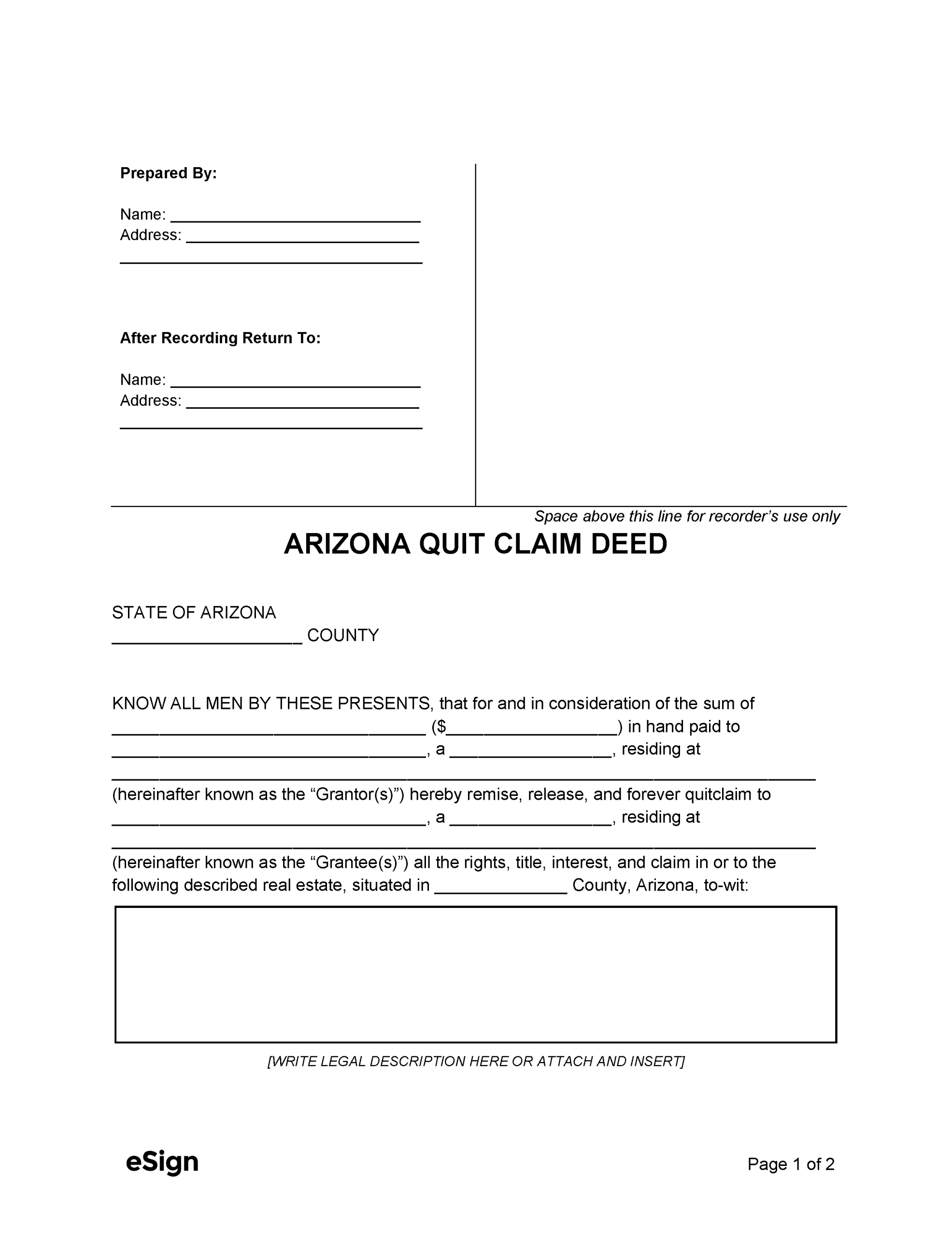Recording Details
- Signing Requirements – The grantor’s signature must be notarized.[1]
- Where to Record – County Recorder’s Office[2]
- Recording fees – $30 (at the time of writing)[3]
Formatting Requirements
Quitclaim deeds must meet the following formatting conditions[4]:
- Paper: Maximum 8.5″ x 14″
- Font: Minimum 10pt
- Margins: Minimum 2″ top margin on first page, 0.5″ on all remaining sides and following pages
Quitclaim Deed (Preview)
Affidavit of Property Value – This affidavit must be filed with a deed unless it meets an exemption listed in § 11-1134.[5]

